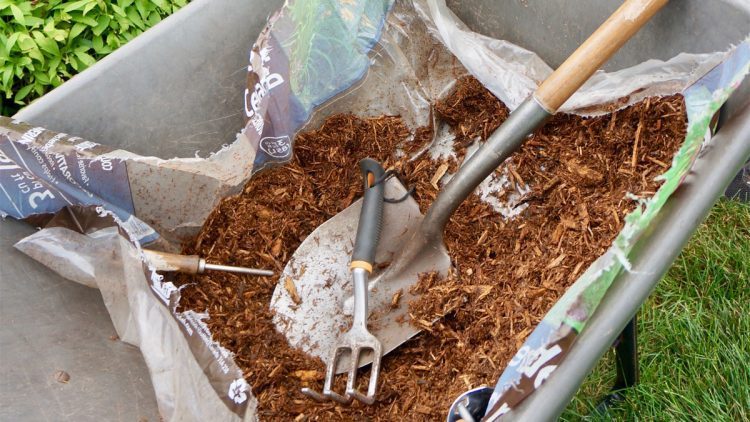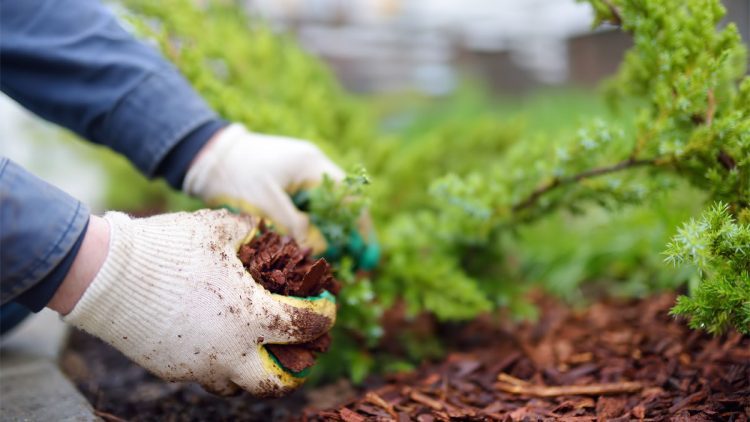Can Mulch Catch Fire?
Absolutely, mulch could catch fire and then spread to your home, particularly in hot, dry seasons. Mulch depth is important: spread your mulch 2–4 inches and avoid going any thicker than 6 inches. Attempt to keep sparks out of mulch beds: cigars, cigarette butts, and matches are typical factors. Water mulch throughout hot days: dry, dark mulch is going to heat up faster. Light weight mulch can help in hotter areas and climates. Keep mulch separate from your house: leave about 18 inches of area and consider a 10–20 inches of river rock strip as an impediment.
No question about it, mulch is an ideal asset to a forest. The same as it is concerning a home.
Could Mulch Catch on Fire? Four Tips to Preventing Mulch Fires
A mulch bed close to the foundation of your home displaying mulch fire risk and secure landscaping placement.
However, did you know that there are some concealed risks that mulch poses? More specifically, are you aware that mulch can result in your house catching on fire? It’s true, all compost, particularly in dry summer weather, is responsible for 1,000’s of fires throughout the US each year.
Good news, this can be avoided.
The following are 4 tips that can guarantee you are not “stoking” any flames in regard to laying mulch.
Tip #1 – Avoid spreading too thickly
Consequently, when mulch is left in larger piles, steam can be created when combined with cooler air. The steam produced by heat is a natural outcome caused by the breakdown of organic material.
Worse yet, when spread too thick if landscaping a home or business. Heat can be created within the mulch, resulting in a fire being ignited more easily.
To stop this hypothetical situation, spread mulch in thin a covering across the area, preferably 2-4 inches. However, never exceeding more than 6”!
Correct Mulching Is going to:
- Keep loss of soil water at a minimum,
- Keep weeds at bay,
- And keep low soil temperatures.
Improper mulching is going to pose a risk of igniting a fire!
Tip #2- Don’t provide an accelerant
As reported by numerous agencies, a very high proportion of mulch fires start, unintentionally, by us.
To stop this from happening do not dispose of lit cigars, lit cigarettes, and/or matches in these fire-prone areas.
Alternatively, try placing a container in or around specified smoking areas. To guarantee that one does not inadvertently ignite any mulch.
Tip #3- Water routinely
Because a lot of mulches are darkish in color, it consumes more heat, increasing the temperature.
This is particularly true in the hotter, summer seasons. And throughout these times mulch could dry out and enter a more flammable condition.
For combating this matter, water your yard’s mulch as you water your plants. This keeps moisture in your mulch at an optimal degree and keeps inside (of the mulch) temperatures at a decreased, safer condition.
Even though a lot of people have a preference for darker mulches, selecting a light-colored mulch can prevent it from catching on fire. This is particularly important if you live in a hot dry area.
Tip #4- Give it space
And, last tip, mulching around or up against a structure can increase the possibility of causing any damage to the structure, should a mulch fire break out.
If feasible, offer at least 18-inches of space between landscaping mulch and any structure and/or materials that could be potentially combustible.
- Some Other Accelerants Comprise:
- Dry bushes,
- Insecticides/ Pesticides,
- Gasoline cans,
- And fertilizers.
In addition, keep space between any electrical devices, like Christmas lights or accent lights focused on your home.
Cautious spacing between mulch beds and house siding decreases fire risk.
Maybe Surround Your Home with a Barrier
Lastly, as an added precaution. Maybe add a 10–20-inch strip of decorative river rock around your home’s outside. This can create a beneficial barrier, similar to a firewall between your home and the mulch.
Landscaping Materials Phoenix by A&A Materials, Inc.
A & A Materials, Inc., located in Scottsdale, Arizona, offers Landscaping Materials for your landscaping needs. Call us at 480-990-0557 for more information.



